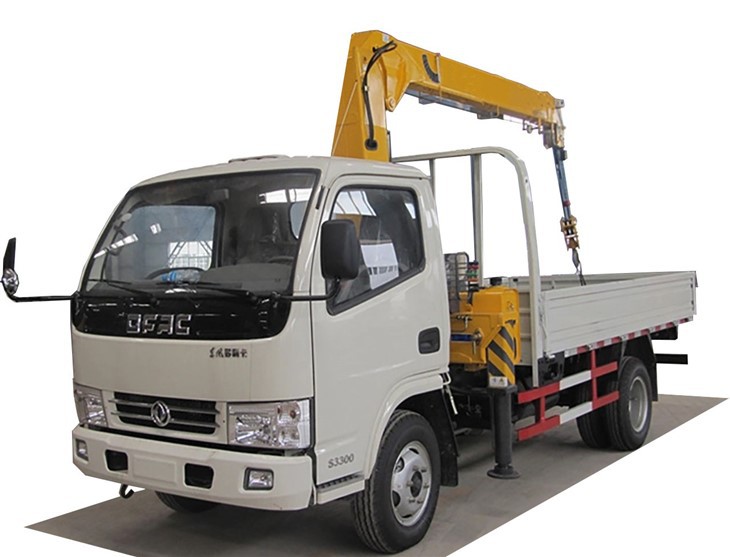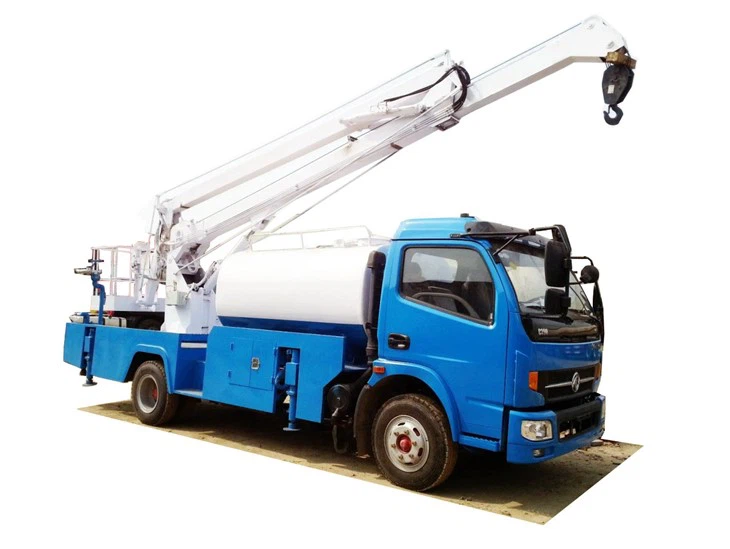Ultimate Guide to Front Loader Trucks: Features, Benefits, and Best Practices

Introduction
Front loader trucks are indispensable in various industries, from construction to waste management. Known for their robust capabilities and efficient performance, these vehicles are designed to handle heavy loads with ease. This article will explore the intricacies of front loader trucks, including their features, types, applications, and maintenance tips, aiming to provide a comprehensive overview for both new users and seasoned professionals.
What is a Front Loader Truck?
A front loader truck, often referred to simply as a front loader, is a heavy-duty vehicle equipped with an articulated arm and a bucket at the front. It is primarily used for loading materials, such as dirt, sand, gravel, and debris, into trucks or other machinery. Front loader trucks come in various sizes and capacities, making them versatile tools across different sectors.
Key Features of Front Loader Trucks
- Articulated Design: The design allows for enhanced maneuverability in tight spaces.
- Powerful Hydraulic System: Facilitates efficient lifting and loading operations.
- Durable Construction: Built to withstand rugged use and harsh environments.
- Operator Comfort: Many models offer ergonomic controls and comfortable cabins.
Types of Front Loader Trucks
1. Wheel Loaders
Wheel loaders are the most common type of front loader truck. They come with large rubber tires, offering superior mobility on varying terrains. These loaders are suitable for a range of applications, from construction sites to landfill operations.
2. Track Loaders
Track loaders, equipped with tracks instead of wheels, excel in soft or uneven ground conditions. Their low ground pressure makes them ideal for marshy or loose terrains, where wheeled loaders might struggle.
3. Mini Loaders
Mini loaders are smaller, more compact versions of front loader trucks. They are particularly useful in residential landscaping or tight urban job sites where space is limited. Despite their size, mini loaders can handle a variety of tasks with the right attachments.
4. Skid Steer Loaders
Skid steer loaders have a unique mechanism that allows for quick turns and maneuverability in confined spaces. These are highly adaptable machines, often used with various attachments such as buckets, forks, and grapples.
Applications of Front Loader Trucks
1. Construction
In construction, front loader trucks are essential for moving materials like soil, gravel, and concrete. Their ability to quickly load and transport heavy materials contributes to the efficiency of construction projects.
2. Agriculture
Front loaders are utilized in agriculture for tasks such as loading feed, moving bales, or clearing fields. Their versatility makes them valuable assets on farms.
3. Waste Management
In waste management, front loader trucks play a crucial role in loading refuse into collection vehicles and managing recyclables. Their efficient operation is pivotal in maintaining clean environments.
4. Landscaping
In the landscaping industry, front loader trucks assist in moving soil, rocks, and other materials, helping in the creation of beautiful gardens and outdoor spaces.
Advantages of Using Front Loader Trucks
1. Increased Efficiency
Front loader trucks significantly speed up the loading and transporting process, allowing for increased productivity on job sites.
2. Versatility
With the ability to attach various tools, front loaders can perform multiple functions, reducing the need for multiple machines.
3. Cost-Effectiveness
Investing in a front loader truck can lead to long-term savings, as they decrease labor costs and improve operational efficiency.
4. Enhanced Safety
Front loaders are designed with safety features to protect the operator and those in the vicinity, including backup alarms and stability mechanisms.
Maintenance Tips for Front Loader Trucks

1. Regular Inspections
Conducting regular inspections can help identify issues before they become serious problems. Check hydraulic systems,tyres, and structural integrity.
2. Routine Lubrication
Ensure all moving parts are properly lubricated to minimize wear and tear and improve overall performance.
3. Cleaning the Machine
Keeping the machine clean helps prevent rust and corrosion. Remove dirt and debris regularly, especially from the hydraulic components.
4. Monitor Fluid Levels
Regularly check and replace hydraulic fluid, engine oil, and coolant as recommended by the manufacturer.
Choosing the Right Front Loader Truck
1. Determine Your Needs
Assess the types of jobs you will perform. The size and capacity should match your operational requirements.
2. Evaluate Engine Power

Choose a front loader with sufficient engine power to handle the loads you’ll be transporting. Higher horsepower typically means better performance.
3. Consider Attachments
Look for a model with compatible attachments that allow for various tasks. This can enhance your machine’s versatility.
4. Brand Reputation
Research brands for reliability and customer service. A reputable manufacturer can be crucial for support and maintenance services.
Cost Implications of Front Loader Trucks
| Type of Loader | Average Price Range | Operating Costs |
|---|---|---|
| Wheel Loader | $100,000 – $500,000 | Moderate |
| Track Loader | $150,000 – $600,000 | High |
| Mini Loader | $30,000 – $100,000 | Low |
| Skid Steer Loader | $25,000 – $75,000 | Low to Moderate |
FAQ Section
1. What is the difference between a front loader truck and a backhoe?
A front loader truck is primarily designed for loading and transporting materials, while a backhoe has a scoop at the front and a digging arm at the back, making it suitable for excavation tasks.
2. How much can a front loader truck carry?
Depending on the model, front loader trucks can carry anywhere from 1 ton to over 10 tons of material.
3. What types of attachments can be used with front loader trucks?
Common attachments for front loaders include forks, buckets, grapples, and rakes, which enhance the machine’s versatility.
4. How can I improve the lifespan of my front loader truck?

Proper maintenance, including regular inspections, timely repairs, and keeping the machine clean, can significantly extend the lifespan of a front loader truck.
5. Are front loader trucks suitable for residential projects?
Yes, smaller models like mini loaders and skid steer loaders are ideal for residential landscaping and construction projects.
6. Where can I find used front loader trucks for sale?
Used front loader trucks can be found through online marketplaces, auction sites, and equipment dealerships that specialize in construction equipment.
